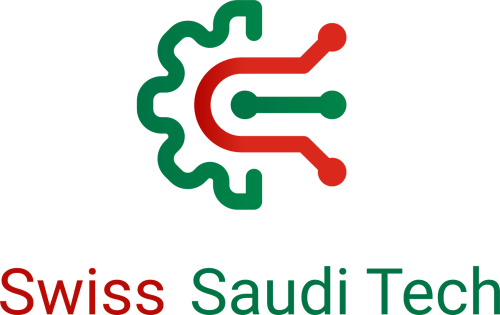An In-depth Look at How AI and IoT are Transforming Healthcare Delivery
Understanding the Fundamentals of Smart Healthcare
In the realm of modern medicine, Smart Healthcare Management is emerging as a pivotal force in revolutionizing healthcare practices around the world, including prominent nations like the Kingdom of Saudi Arabia (KSA) and Switzerland. By integrating advanced technologies such as Artificial Intelligence (AI), the Internet of Things (IoT), and telemedicine into everyday healthcare services, these countries are setting benchmarks in efficient, error-free, and accessible healthcare. Smart Healthcare not only refines patient care but also enhances the operational capacities of healthcare providers by offering real-time solutions to complex problems. For instance, AI-enabled systems in hospitals can predict patient influx and help in resource management, a crucial aspect of healthcare administration.
Role of Executive Coaching in Smart Healthcare
As healthcare institutions embrace technological advancements, the need for skilled leadership becomes more apparent. Executive coaching emerges as a key player in this transformation, equipping leaders with the necessary skills to manage change effectively. In KSA and Switzerland, where healthcare systems are renowned for their efficiency, executive coaching helps leaders to implement Smart Healthcare technologies in a way that aligns with organizational goals. Through targeted coaching sessions, healthcare executives are trained on various facets of leadership and management skills, from effective communication to strategic decision-making in the face of technological disruptions.
Impact of Effective Communication on Healthcare Management
Effective communication is foundational in the successful deployment of Smart Healthcare services. Whether it’s explaining the intricacies of AI and IoT to stakeholders or navigating the complexities of healthcare regulations, clear communication ensures that all parties are aligned with the project’s objectives. This becomes particularly important in a multidisciplinary environment where technical understanding may vary. Training sessions on effective communication techniques have become a staple in management consulting curriculums across business schools in KSA and Switzerland, reflecting the importance of this skill in leading successful projects.
Blockchain and AI: Enhancing Security and Efficiency in Healthcare
In the pursuit of more secure and efficient healthcare systems, blockchain technology stands out as a transformative force. When integrated with AI, blockchain technology can significantly enhance data security in healthcare applications, crucial for protecting sensitive patient information. The decentralized nature of blockchain ensures that medical records are immune to tampering and fraud, thus fostering a trust-based relationship between patients and healthcare providers. For instance, in Switzerland, several blockchain pilots have demonstrated improvements in the security of medical data exchanges across hospital networks.
Exploring the Potential of The Metaverse in Professional Training
The Metaverse offers exciting new avenues for professional training within the healthcare sector. By simulating real-world medical scenarios, this virtual environment can provide healthcare professionals with the opportunity to hone their skills without the risk of real-life consequences. In leadership and management training, the Metaverse enables executives to experience complex project management situations in a controlled setting, thereby enhancing their ability to handle similar challenges in the real world. This innovative approach is seeing increasing adoption in forward-thinking countries like KSA and Switzerland, known for their commitment to incorporating cutting-edge technologies in education and training.
Generative AI: A Game Changer in Project Management
Generative Artificial Intelligence (AI) is redefining the scope of project management in healthcare by automating routine tasks and generating innovative solutions to age-old problems. This technology not only speeds up the process but also brings a level of precision that is hard to achieve manually. Project managers utilizing generative AI in their workflow can manage larger and more complex projects with greater efficiency, which is crucial in a high-stakes environment like healthcare. In regions such as KSA and Switzerland, where efficiency and innovation drive business success, generative AI is becoming a cornerstone of project management strategies in healthcare settings.
Telemedicine: Bridging the Gap Between Rural and Urban Healthcare
Telemedicine has been a cornerstone in democratizing access to healthcare services, particularly in rural areas where medical facilities may not be as robust as in urban centers. In countries like KSA and Switzerland, telemedicine platforms have significantly reduced the travel need for patients, allowing them to receive high-quality care from the comfort of their homes. This not only improves patient satisfaction but also drastically cuts down on healthcare costs associated with transportation and hospital stays.
Healthcare IoT: Advancing Patient Care Through Innovation
The Internet of Things (IoT) is revolutionizing patient care by enabling continuous monitoring through connected devices. In the intensive care units of hospitals across Switzerland and KSA, IoT devices provide real-time data on patient vitals to healthcare teams, facilitating immediate responses to any critical changes in patient conditions. This continuous monitoring helps in preempting potential emergencies and significantly boosting patient outcomes in complex cases.
#SmartHealthcare #Telemedicine #IoT #HealthcareManagement #ExecutiveCoaching #LeadershipSkills #BusinessSuccess #AI #Blockchain #ProjectManagement #KSA #Switzerland #HealthcareInnovation #Metaverse #GenerativeAI











